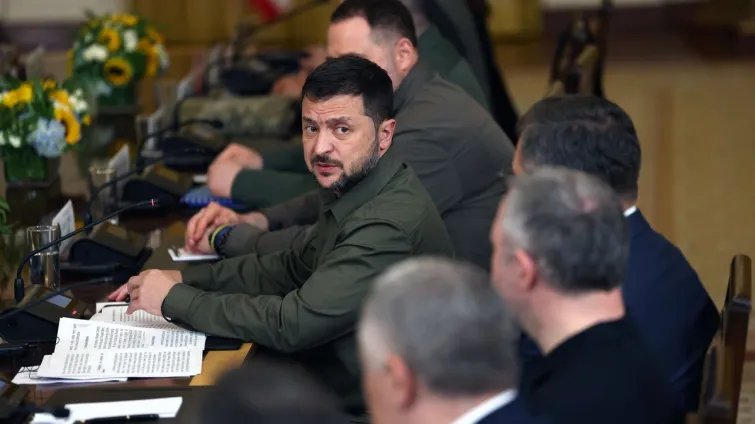US Links Economic Aid to Anti-Corruption Reforms in Ukraine
The United States is taking stringent measures to ensure that Ukraine addresses its internal corruption issues, linking the delivery of specific economic aid to the nation's progress in institutional reforms. The Biden administration's recent communications with Kyiv underscore this linkage, although its support for Ukraine'

The United States is taking stringent measures to ensure that Ukraine addresses its internal corruption issues, linking the delivery of specific economic aid to the nation's progress in institutional reforms. The Biden administration's recent communications with Kyiv underscore this linkage, although its support for Ukraine's defense mechanisms remains steadfast.
Over the past weeks, several notifications have been dispatched to Ukraine, emphasizing the importance of curbing governmental corruption. The apprehension surrounding this issue has grown, especially since Congress has yet to approve the proposed $24 billion in additional funding for Ukraine. Some Republicans have expressed concerns about the potential misuse of funds without stringent oversight and conditionalities.
The State Department had sent a formal diplomatic note to Ukraine earlier in the summer, making it clear that the nation needs to push for anti-corruption initiatives and maintain financial transparency to continue receiving US direct budget support.
Since the onset of the war, Ukraine has received more than $23 billion in direct budget support from the US. This funding, distinct from military aid, allows the country to offer essential services like health care, emergency response, and education. The funds are managed by the United States Agency for International Development (USAID) and transferred via the World Bank to the Ukrainian Ministry of Finance.
These stringent conditions also extend to mandates under Ukraine’s International Monetary Fund program. This includes significant reforms in areas such as anti-money laundering and counteracting the financing of terrorism.
Despite these clear directives, the ultimate fate of the administration's funding request for Ukraine remains uncertain, with Congress still deliberating its decision. The administration, while publicly emphasizing its desire to assist Ukraine in combating corruption, has also been actively discussing the issue in closed-door diplomatic meetings.
National Security adviser Jake Sullivan and Secretary of State Antony Blinken have both held separate discussions regarding Ukraine's efforts against corruption with Ukrainian officials over the past month.
Furthermore, the White House has also put forth a draft outlining necessary reforms for Ukraine. This roadmap lays out reforms to be implemented over various time frames, many of which overlap with requirements for EU membership and International Monetary Fund benchmarks.
Amidst these developments, Ukraine's commitment to combating corruption has been on full display. President Volodymyr Zelensky has taken measures, such as high-profile raids against suspected corrupt officials, to display his dedication to the cause. The Ukrainian embassy has also stated that the nation has made significant strides in implementing reforms with the support of international allies.
Given the vast amounts involved, the funds extended as aid to Ukraine are closely monitored. The importance of accountability in fund utilization has been a consistent point of emphasis from the US administration.
USAID and Ukraine's Specialized Anti-Corruption Prosecutor recently signed an understanding, further fortifying USAID's authority to investigate any potential fund misuse by Ukraine.
However, the administration's supplemental request for Ukraine, which encompasses up to $3.3 billion in direct economic aid, currently hangs in the balance, as Congress hasn't yet approved the allocation.
With defense funds amounting to over $43.7 billion since the Biden administration began, the Pentagon is also establishing measures to keep a closer watch over US military aid to Ukraine. A new team will be set up in Ukraine to oversee ongoing US security assistance, marking the first time Department of Defense personnel will be stationed in Ukraine since Russia's invasion in February 2022.
In addition to the economic and military aid discussions, there have also been deliberations on whether President Zelensky should proceed with a presidential election in March 2024. While some see it as a reflection of Ukraine's commitment to democracy, Zelensky highlighted the complexities of holding elections during wartime.
All these developments point to a critical phase in US-Ukraine relations, with clear directives and expectations from the US on Ukraine's anti-corruption stance.




